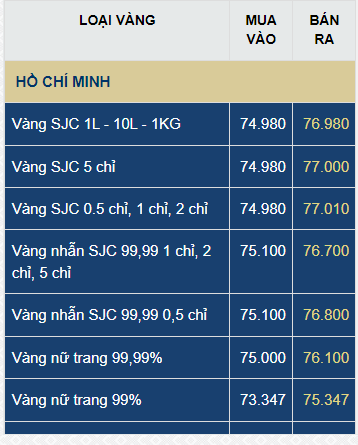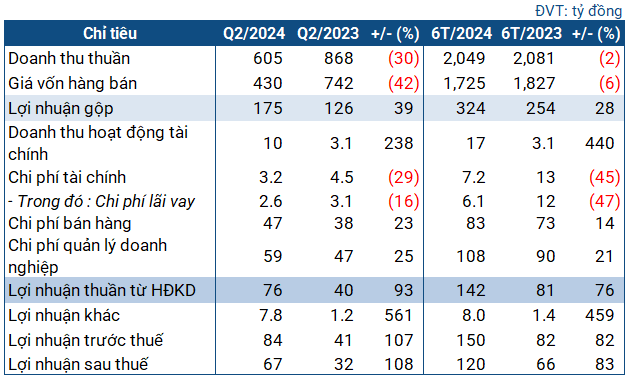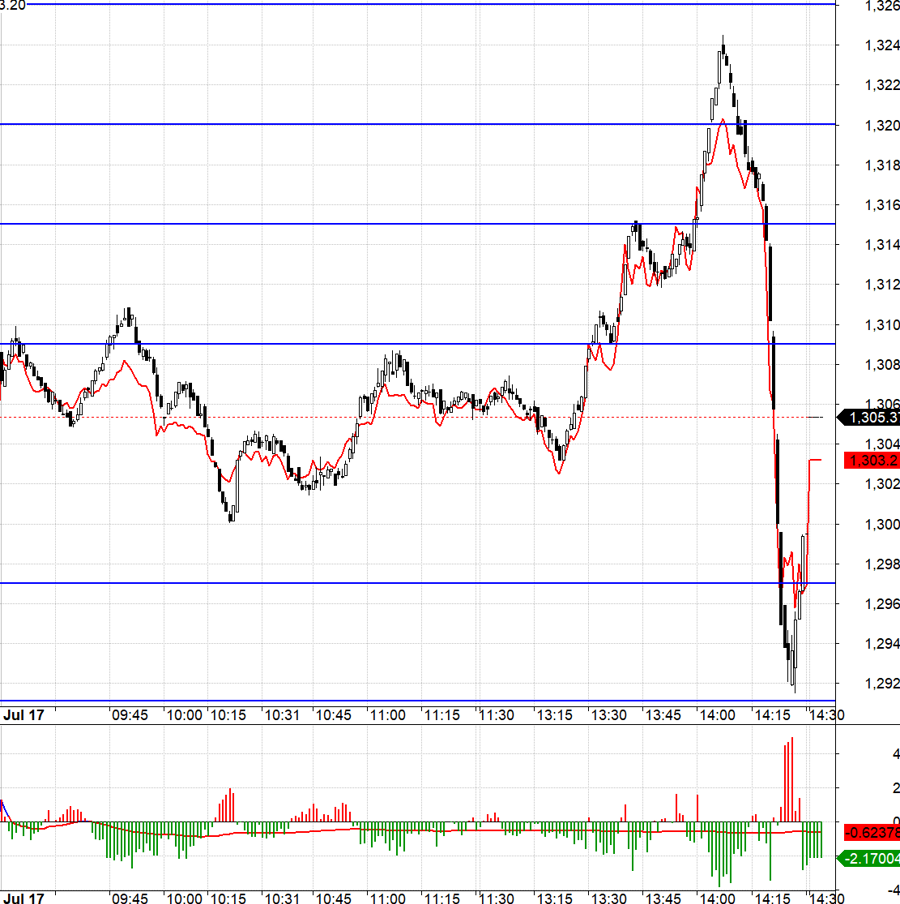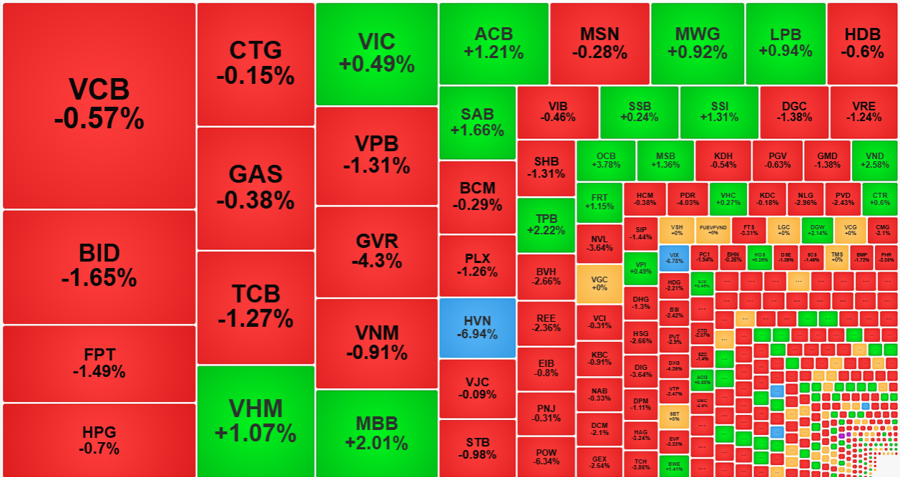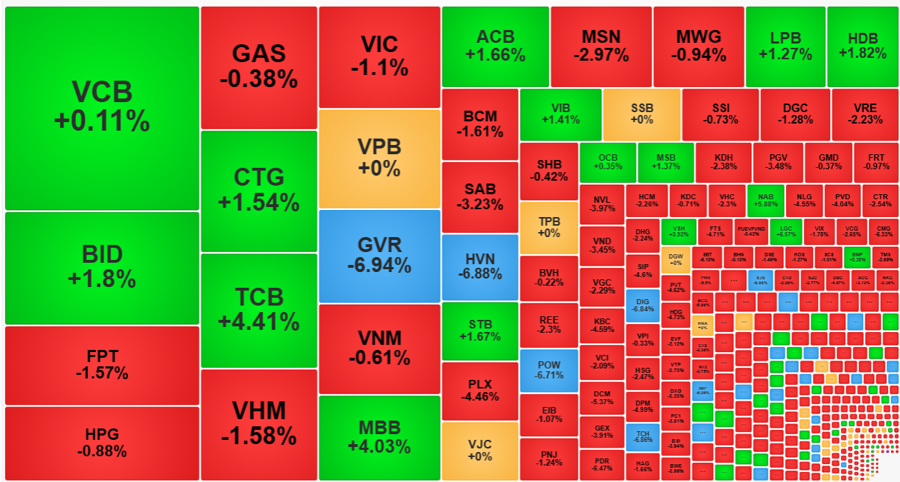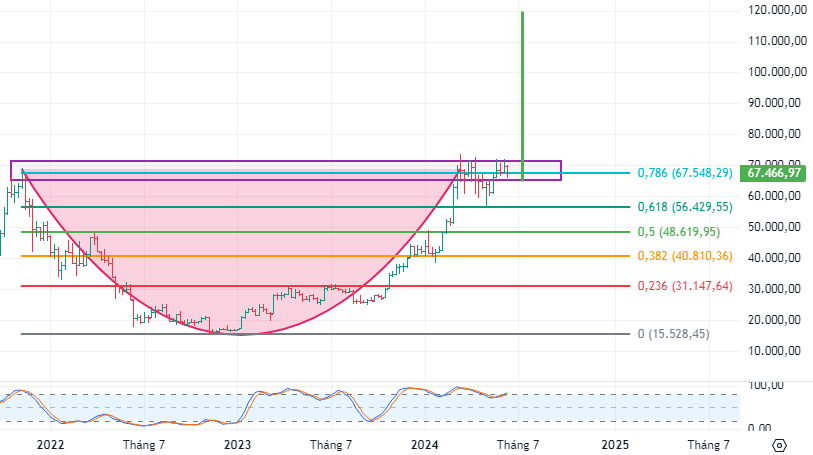Everywhere is booming
Before Tet holiday, Ms. Ngoc Thanh listed a 66m2 apartment with two bedrooms at the Nguyen Xien street project, Thanh Tri district for VND 2.7 billion, but there were no inquiries from potential buyers.
However, after Tet, she was surprised to see that the apartment next to hers was sold for VND 3.3 billion, so she decided to put her apartment back on the market. “Just after 1 week, someone came and made a deposit at a price that increased by VND 600 million. I bought the apartment in 2016 for VND 1.8 billion. Now, the selling price is 80% higher than the price I bought it for over 7 years ago,” Ms. Thanh said.
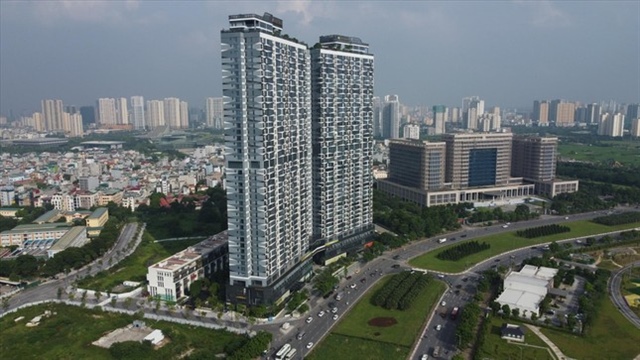
Hanoi apartments “soaring” due to scarce supply. Photo: Nhu Y |
Ms. Thu Huyen decided to sell her over 100m2 apartment in the Ngoai Giao Doan urban area (Bac Tu Liem). Real estate agents offered a price of VND 68 million/m2, while she bought it 3 years ago for VND 43 million/m2. “I think the price will continue to rise so I am waiting for it to go up before finalizing the sale,” Ms. Huyen said.
The shock of apartment price increases has spread to suburban projects. These areas, although located tens of kilometers away from downtown Hanoi, have recorded apartment prices ranging from 60-70 million VND/m2.
|
“Currently, the costs of land use and construction have increased significantly, making it difficult for commercial real estate projects to offer entry-level apartment prices in Hanoi for less than 30-40 million VND/m2. In addition, there is a possibility that some units with large land reserves and new projects will push prices up, causing the market to fluctuate strongly in the past.” Mr. Pham Duc Toan – CEO of EZ Property |
The newly commenced Lumi Hanoi project (Tay Mo ward, Nam Tu Liem district) has an original price of about VND 66 million/m2. Including taxes, the apartment price here can reach up to VND 72 million/m2. At this price level, a basic 2-bedroom apartment with an area of about 74m2 has a selling price of up to VND 5.3 billion.
Also in Tay Mo ward, the sale price of the Masteri West Heights project apartments listed by real estate agencies range from VND 3.6 billion (59m2 apartment) to VND 3.9 billion (62m2 apartment), about 61-62 million VND/m2.
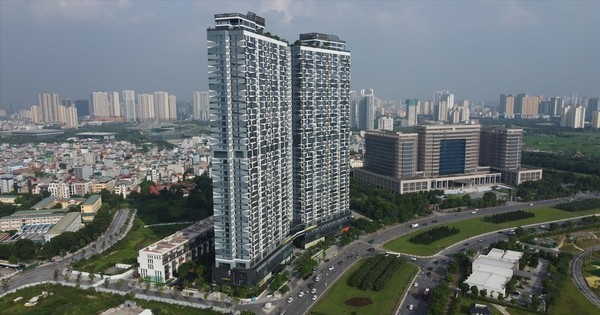 Severe shortage of social housing for many years. Photo: Nhu Y |
Mr. Pham Duc Toan, CEO of EZ Property, said that in Hanoi, both primary (directly from developers) and secondary (re-sale) apartment prices have been increasing significantly since last year. Mr. Toan assesses that the price of apartments in Hanoi will be difficult to decrease due to high housing demand, while the supply of new apartments is very limited due to many projects facing legal issues.
Lack of social housing
According to real estate experts, the “soaring” apartment prices in Hanoi are due to the prolonged scarcity of supply in the market. There have been very few new projects launched while the demand for apartments for residential purposes is high. Even the social housing segment (considered as a lifeline to reduce apartment prices) has been slow to be implemented.
At the Spring Real Estate Forum on March 15, Mr. Le Viet Hai, Chairman of Hoa Binh Construction Group, said that in 2021, the government issued a resolution to promote social housing development, but there have been no transactions since then.
“I believe that the core issue lies in the incentives for social housing, such as project approval, design approval, target buyers, project scale, selling prices, which are still very complex. About 2 years ago, we worked with the social housing investor, and the project already had an investment license, but it wasn’t until the beginning of this year that the procedures for constructing social housing were completed,” Mr. Hai said.
According to Mr. Hai, the root of the problem is the state’s incentives for land use tax, value-added tax (VAT), credit, and management costs that are not suitable for market rules, so investors are not enthusiastic.
The slow implementation of social housing by the Ministry of Construction is also attributed to the fact that social housing development policies have yet to be timely revised, leading to many limitations such as land funds shortage, limited credit sources, and prolonged implementation time. Although amended laws such as the Housing Law and the Real Estate Business Law have been passed, they will only take effect from the beginning of 2025. Therefore, the incentives for developers and simplified procedures have not been applied yet.
Renting is recommended
To solve the housing problem for people, many experts suggest considering the form of renting instead of buying social housing. Mr. Nguyen Manh Ha, Deputy Standing Chairman of the Real Estate Association, said: “Social housing should be built for rental purposes instead of being sold due to the significant income gap. In many developed countries, especially Germany, rental housing is the main form of housing in the country,” Mr. Ha said.
Mr. Ha suggests increasing the percentage of social housing for rent to 30-40%. The state should encourage businesses and individuals to invest in rental housing.
Sharing the same view, economist Vu Dinh Anh believes that the social housing program should focus on renting instead of selling.
“On average, people with low income who buy social housing borrow VND 500 million with preferential loans and have to pay VND 11 million per month for both principal and interest. If they cannot afford it, where will they get money to repay the rent?” Mr. Anh said. He believes that social housing should be the opposite of a project where 80% is for rent and 20% is for sale.
|
Deputy Minister of Construction Nguyen Van Sinh said that compared to the target of building one million social housing units by 2025, Hanoi has only developed 1,700 units, accounting for 9% of the target, while Ho Chi Minh City has achieved 19% with nearly 5,000 units. These localities have also registered to complete social housing units by 2024 at a low level: Hanoi (nearly 1,200 units), Ho Chi Minh City (nearly 3,800 units). |
Ngoc Mai









